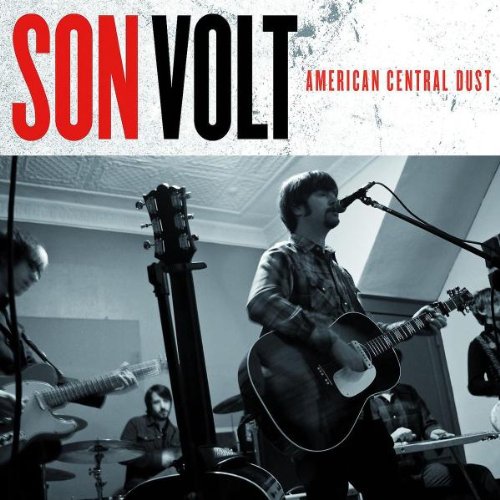
Son Volt
American Central Dust
Release Date: Jul 7, 2009
Genre(s): Rock, Alternative, Country
Record label: Rounder
Music Critic Score
How the Music Critic Score works
Album Review: American Central Dust by Son Volt
Average, Based on 7 Critics
Based on rating B-
After two albums of musical expansion, Son Volt’s retreat to their traditional country-folk motif winds up coming across as listless and a little bored. Jay Farrar’s nasal drone often sounds stranded on stage all alone, which helps his frequently cumbersome lyrics (”More ways to buy trouble/Than a bail bondsman finds friends in jail”)…well, not at all. So while the songs that sizzle on American Central Dust — ”Down to the Wire,” ”When the Wheels Don’t Move” — are of vintage stock, be prepared to sift through some monotonous meandering ? to find them.
Based on rating 5/10
After a pair of ill-received solo records, it was good news when Jay Farrar reassembled Son Volt. Of course, it took him a bit to recapture the spark. The steady bar band sound that took up much of Okemah and the Melody of Riot ended up sounding nearly as awkward as its title, as the music never quite fit with Farrar’s wanderings through his love of folk music.
Based on rating 2/5
Jay Farrar has spent the last 20 years perfecting boring. His time in iconic alt-country band Uncle Tupelo with Jeff Tweedy produced the band's more unremarkable tunes, and both his Son Volt and solo ventures were equally yawn-inducing, with the exception of Son Volt's promising debut, Trace. [rssbreak] This new release, the band's sixth, is Farrar's least energetic work yet.
Based on rating 3.7/10
In the late 1980s, the members of Uncle Tupelo were checking out the entire country and folk sections from their local library and passing them around like bootlegs, which exposed them to many of the artists and styles that would inform their sound. A few of the records they cite as inspirations-- including 1975's High Atmosphere: Ballads and Banjo Tunes from Virginia and North Carolina-- were compiled and released on Rounder Records, which at one time specialized more in old acts than new. It's not especially surprising that Son Volt, Jay Farrar's post-Tupelo band, have finally signed with the venerable label, placing them alongside acts as diverse as Nanci Griffith, Rhonda Vincent, and Farrar's hero Woody Guthrie.
Opinion: Very Good
SON VOLT“American Central Dust”(Rounder) Movement and stasis face off in bitter opposition throughout “American Central Dust,” the stoic but sympathetic new Son Volt album. For Jay Farrar, the band’s lead singer and songwriter, stillness equals sickness, and locomotion means release. .
Opinion: Very Good
Jay Farrar has long shared Neil Young's rustic vision of America, but never with the somber precision of American Central Dust. Son Volt's third album since Farrar reassembled the band in 2005 with Austin bassist Andrew Duplantis in tow, Dust kicks up a darkness that previously only surfaced on his solo work. Young's explicitly channeled on two piano dirges, "Cocaine and Ashes," which empathizes with Keith Richards' supposed snorting of his father's remains, and "Sultana," which describes the worst maritime disaster in U.S.
Opinion: Fairly Good
Stream Wilco's Wilco (The Album) in its entirety here.--Former bandmates travel familiar territory Wilco: Wilco (The Album)[Nonesuch]74/100Son Volt: American Central Dust[Rounder]61/100Admittedly, a joint review of the latest albums from Wilco and Son Volt is a bit unfair. It’s been 15 years since the two bands rose from the ashes of Uncle Tupelo, and both quickly left their progenitor behind in terms of musical style, lyrical maturity and commercial success. No matter how influential Uncle Tupelo was (and that’s certainly debatable), the band released only four albums in its seven-year history.

